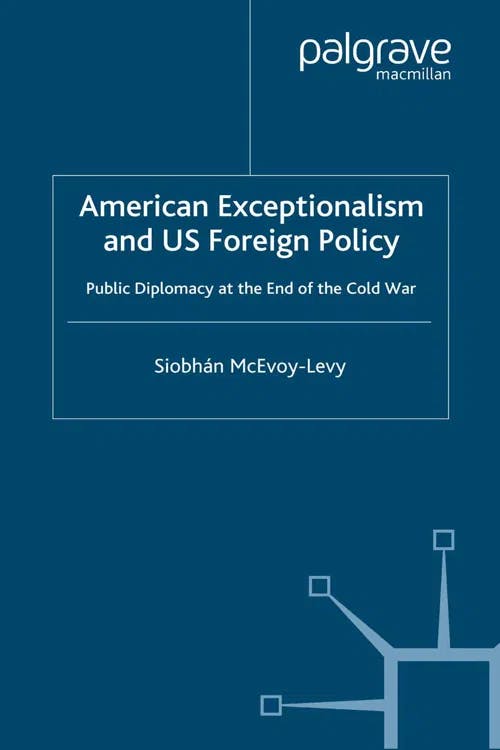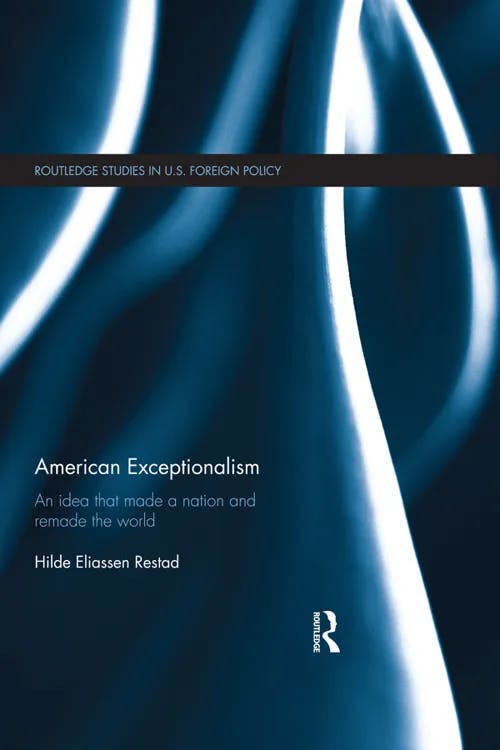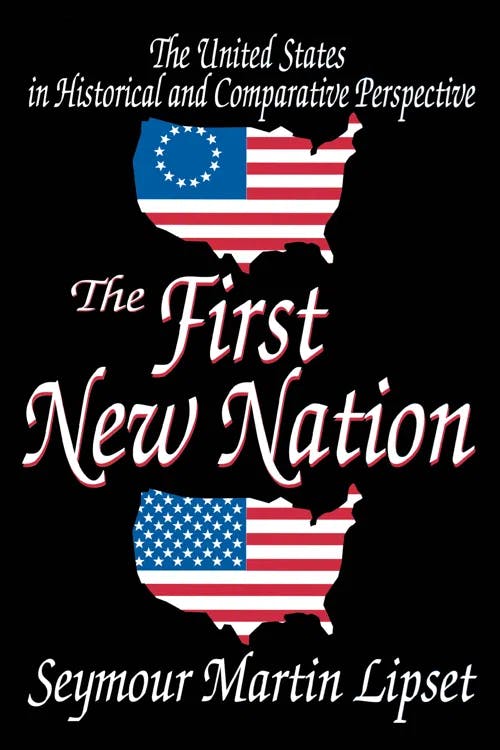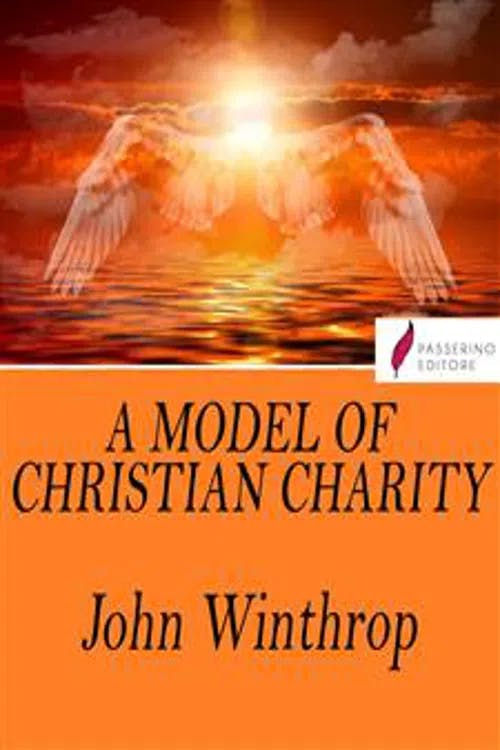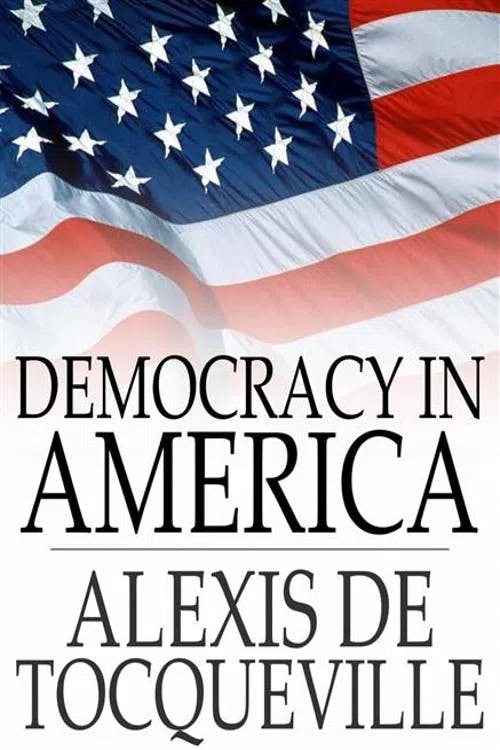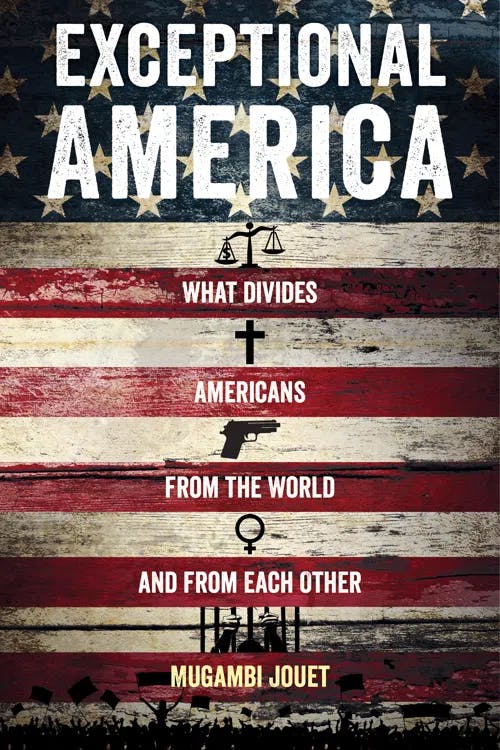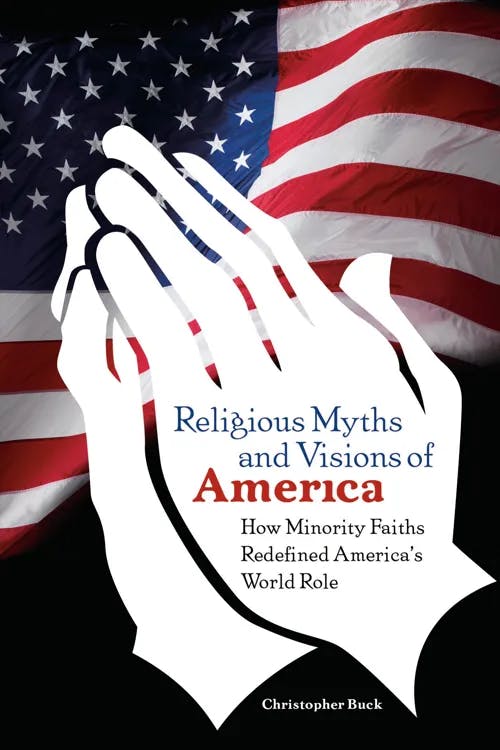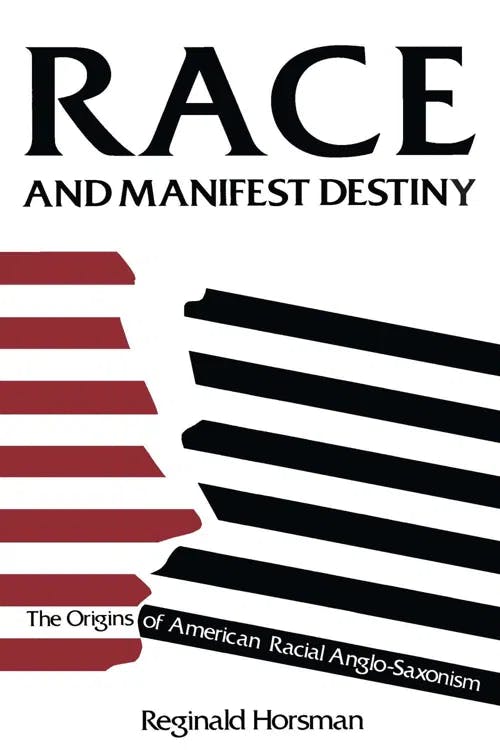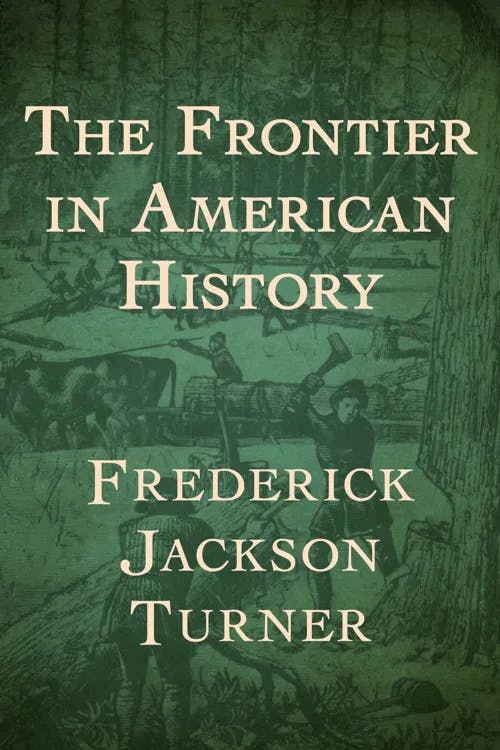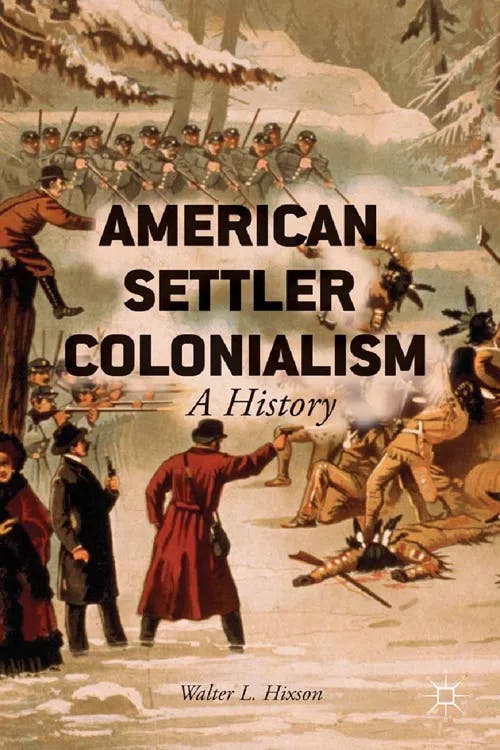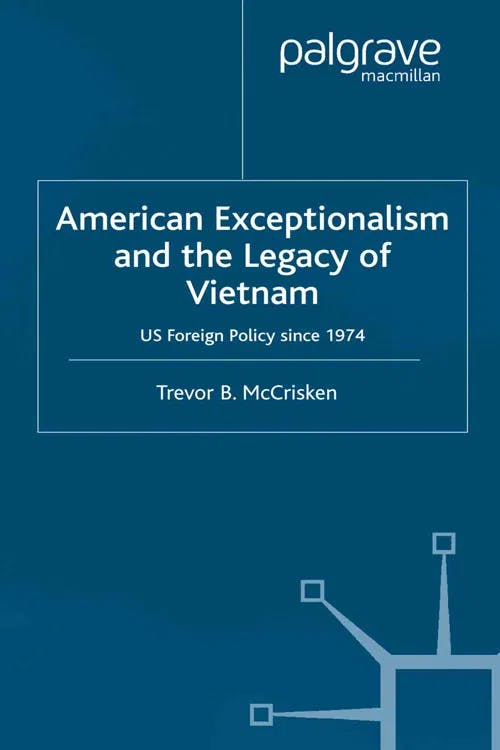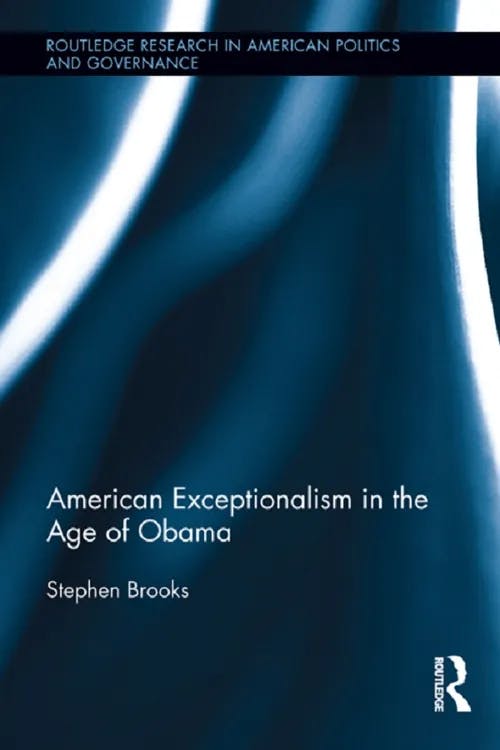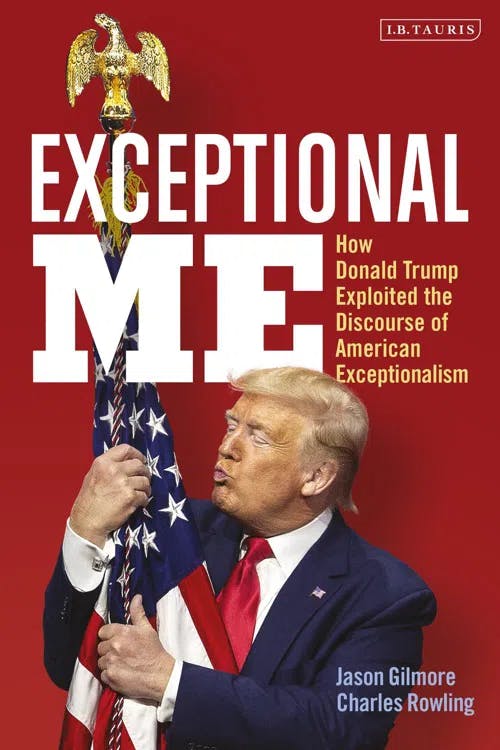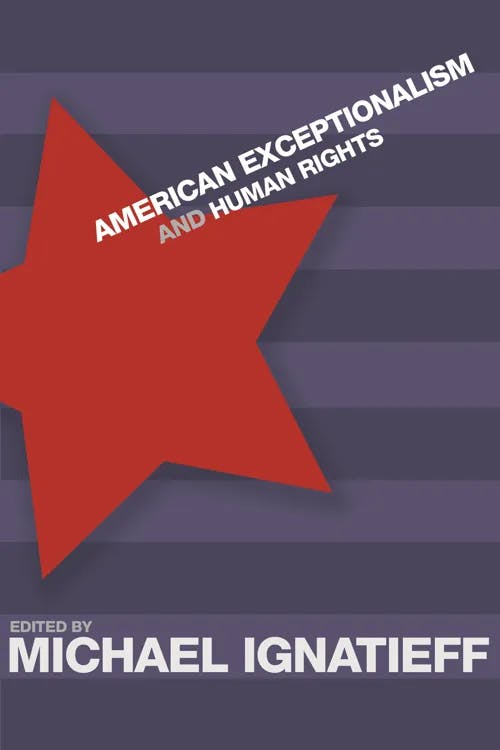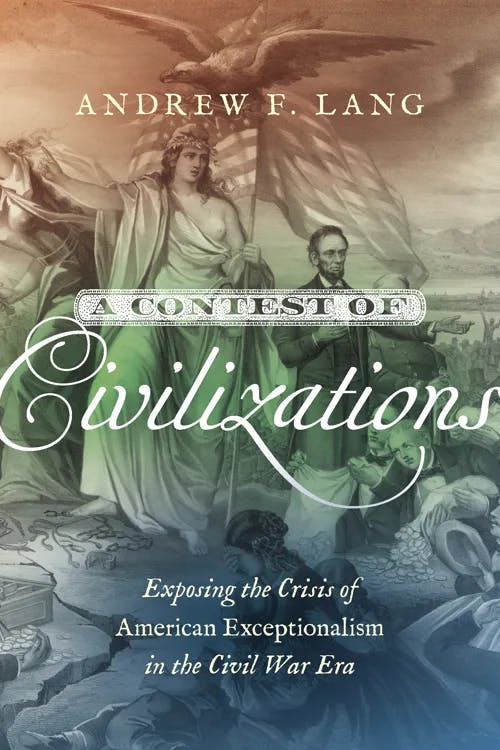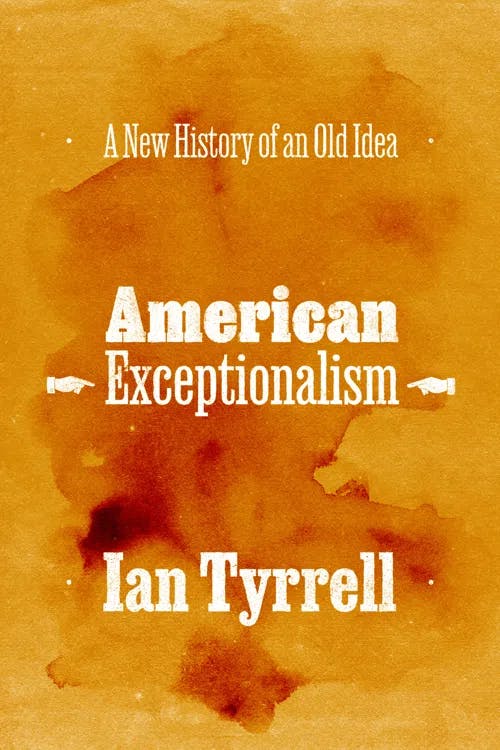What is American Exceptionalism?
PhD, English Literature (Lancaster University)
Date Published: 16.01.2024,
Last Updated: 16.01.2024
Share this article
At the center of the world
From ancient Greece to the Soviet Union, many civilizations throughout history believed in their superiority over all other nations. They made it their mission to dominate, “civilize,” and lead the rest of the world. Though there are many examples of exceptionalism existing in countries around the world, the endurance of American exceptionalism continues to be discussed by historians, politicians, and sociologists across the globe.
American exceptionalism is the belief that the United States, in terms of its values, political systems, and history, is unique and exemplary when compared to other nations across the globe throughout history. The idea of American exceptionalism places the US at the center of the world, positioning it as a global leader, worthy of universal admiration. An example of an idea rooted in American exceptionalism is the American Dream, i.e., the notion that those in the US, regardless of their background, can become successful and prosperous if they work hard enough. This positions the US as a unique environment that enables the personal success of all citizens. As Siobhán McEvoy-Levy explains,
Numerous scholars and commentators, both foreigners and American-born, as well as political and religious leaders have evoked this idea, which implies the United States' moral superiority as well as the uniqueness of its origins, political system, social organization and values and cultural and religious characteristics. It has been used to legitimize both idealist and pragmatic, domestic as well as foreign policies. (2001)
Siobhán McEvoy-Levy
Numerous scholars and commentators, both foreigners and American-born, as well as political and religious leaders have evoked this idea, which implies the United States' moral superiority as well as the uniqueness of its origins, political system, social organization and values and cultural and religious characteristics. It has been used to legitimize both idealist and pragmatic, domestic as well as foreign policies. (2001)
American exceptionalism is also seen as playing a pivotal role in forming the US national character. As Hilde Eliassen Restad writes
American identity is strongly present in U.S. history, culture and politics. Americans believe they are a superior people, they believe they are endowed with a unique mission, and they believe they will never succumb to the merciless laws of history. American identity can be meaningfully defined as American exceptionalism because, notwithstanding its debatable objective validity, the belief in American exceptionalism has been a powerful, persistent, and popular myth throughout American history. (2014)
Hilde Eliassen Restad
American identity is strongly present in U.S. history, culture and politics. Americans believe they are a superior people, they believe they are endowed with a unique mission, and they believe they will never succumb to the merciless laws of history. American identity can be meaningfully defined as American exceptionalism because, notwithstanding its debatable objective validity, the belief in American exceptionalism has been a powerful, persistent, and popular myth throughout American history. (2014)
Restad goes on to state that if we consider American exceptionalism as a national identity, it is composed of three concepts, each of which “represents a different aspect of the perceived historic significance of the United States and inspires a certain kind of foreign policy”:
- “The United States is distinct from the Old World”
- “It has a special and unique role to play in world history”
- “The United States will resist the laws of history (meaning that it will rise to great power status yet it will not fall, as all previous republics have).” (2014)
Becoming exceptional: the American Revolution and Democracy in America
So where exactly did this myth of the United States begin?
In The First New Nation (2017), Seymour Martin Lipset argues that American exceptionalism has been present since its inception:
America’s key values—equality and achievement—stem from our revolutionary origins. The United States was the first major colony successfully to revolt against colonial rule. In this sense, it was the first “new nation.”
Seymour Martin Lipset
America’s key values—equality and achievement—stem from our revolutionary origins. The United States was the first major colony successfully to revolt against colonial rule. In this sense, it was the first “new nation.”
Many trace American exceptionalism back to the Great Migration of 1630, in which English pilgrims led by John Winthrop migrated to the Massachusetts Bay Colony in North America. The migrants planned to build a nation founded upon their religious beliefs. The beliefs upon which this new nation was formed would embed ideas of American exceptionalism. In his famous sermon, “A Model of Christian Charity ” delivered before the pilgrims embarked on their journey to the new colony, Winthrop proclaimed that
For wee must consider that wee shall be as a citty upon a hill. The eies of all people are uppon us. (1630, [2020])
John Winthrop
For wee must consider that wee shall be as a citty upon a hill. The eies of all people are uppon us. (1630, [2020])
Winthrop here laid the foundations of American exceptionalism, outlining how the US was to be a pillar of morality that the nations of the world should look to and model themselves upon. McEvoy-Levy writes that,
Originating in the Puritan vision of the New World ‘city on a hill’, the idea of American exceptionalism evolved in tandem with an evolution in the United States’ power. From explaining the United States' God-ordained mission to be a reforming counter to European corruptness, exceptionalism has been evoked to account for, or to enable, US leadership during every important period of geopolitical transition since the late nineteenth century. American Exceptionalism and US Foreign Policy. (2001)
Indeed, the phrase “city upon a hill,” and the idea of the US global destiny, has often been used in modern American political discourse by politicians such as John F. Kennedy and Ronald Reagan.
Though the ideals of American exceptionalism were established in the seventeenth century, the phrase itself was made famous by French aristocrat Alexis de Tocqueville who traveled to the United States in the nineteenth century. As McEvoy-Levy explains,
Alexis de Tocqueville was the first to explicitly refer to America as ‘exceptional’ relative to all other countries, but the uniqueness and moral superiority of America is referred to in the earliest writings of the Puritan colonists. (2001)
In Democracy in America (1835, [2009]) Tocqueville suggests that the United States is unique for several reasons:
The position of the Americans is therefore quite exceptional, and it may be believed that no democratic people will ever be placed in a similar one. Their strictly Puritanical origin—their exclusively commercial habits—even the country they inhabit, which seems to divert their minds from the pursuit of science, literature, and the arts—the proximity of Europe, which allows them to neglect these pursuits without relapsing into barbarism—a thousand special causes, of which I have only been able to point out the most important—have singularly concurred to fix the mind of the American upon purely practical objects.
Alexis de Tocqueville
The position of the Americans is therefore quite exceptional, and it may be believed that no democratic people will ever be placed in a similar one. Their strictly Puritanical origin—their exclusively commercial habits—even the country they inhabit, which seems to divert their minds from the pursuit of science, literature, and the arts—the proximity of Europe, which allows them to neglect these pursuits without relapsing into barbarism—a thousand special causes, of which I have only been able to point out the most important—have singularly concurred to fix the mind of the American upon purely practical objects.
Despite these praises, however, Tocqueville did recognize that the US was not utopian for everyone, citing its support for slavery and the displacement of Native Americans:
When describing America as an “exceptional” country, Tocqueville meant that it is an exception—a singular nation, not an inherently superior one. (Mugambi Jouet, 2017)
Mugambi Jouet
When describing America as an “exceptional” country, Tocqueville meant that it is an exception—a singular nation, not an inherently superior one. (Mugambi Jouet, 2017)
The US’s origin story, the formation of a new, democratic nation separate from British rule, contributed to the notion that the United States had a special destiny, born out of a fight for freedom and self-determination.
Manifest destiny
Central to the idea of American exceptionalism is “manifest destiny,” the nineteenth-century belief that the United States is destined, by God, to expand its territory and spread its values of democracy and capitalism throughout North America. The term “manifest destiny” was first used by John O’Sullivan in 1845, in support of the annexation of Texas by the United States (“Annexation,” The United States Magazine and Democratic Review).
The concept of manifest destiny was inspired in part by earlier European principles such as the Doctrine of Discovery (1493), which granted papal authorization to colonial powers to seize lands in the “New World” and Africa and other non-Christian territories. It is clear to see the ideological connection between imperialism in Europe and the expansionist aims underlining manifest destiny. Manifest destiny would later be used to justify the forced removal of Native Americans, and other Indigenous populations, from their land.
The phrase “manifest destiny” was used for the first time in Congress the following year by Representative Robert C. Winthrop, a descendant of John Winthrop. However, Winthrop used the term in a critical way when voicing his opposition to the joint occupation of Oregon Territory with Britain:
that new revelation of right which has been designated as the right of our manifest destiny to spread over the whole continent. [...] There is a right for a new chapter in the law of nations; or rather, in the special laws of our country; for I suppose the right to a manifest destiny to spread will not be admitted to exist in any nation except the universal Yankee nation! (Quoted in Christopher Buck, Religious Myths and Visions of America, 2009)
Christopher Buck
that new revelation of right which has been designated as the right of our manifest destiny to spread over the whole continent. [...] There is a right for a new chapter in the law of nations; or rather, in the special laws of our country; for I suppose the right to a manifest destiny to spread will not be admitted to exist in any nation except the universal Yankee nation! (Quoted in Christopher Buck, Religious Myths and Visions of America, 2009)
The double standards Winthrop alludes to here are often cited as one of the main issues with American exceptionalism.
In Native America, Discovered and Conquered, Robert J. Miller outlines three basic tenets of manifest destiny:
- “The United States had some unique moral virtues that other countries did not possess.”
- “The United States had a mission to redeem the world by spreading republican government and the American way of life around the globe.”
- “Manifest Destiny had a messianic dimension because it assumed a faith in America’s divinely ordained destiny. This kind of thinking could only arise, it seems, from an ethnocentric view that one’s own culture, government, race, religion, and country are superior to all others.” (2006)
The notion of manifest destiny indicated to the American people that they were superior to other nations and possessed skills and attributes that made them uniquely qualified to lead, and conquer, other nations. In Race and Manifest Destiny, Reginald Horsman explains:
From their own successful past as Puritan colonists, Revolutionary patriots, conquerors of a wilderness, and creators of an immense material prosperity, the Americans had evidence plain before them that they were chosen people; from the English they had learned that the Anglo-Saxons had always been peculiarly gifted in the arts of government; from the scientists and ethnologists they were learning that they were of a distinct Caucasian race, innately endowed with abilities that placed them above other races; from the philologists, often through literary sources, they were learning that they were the descendants of those Aryans who followed the sun to carry civilization to the whole world. (2009)
Reginald Horsman
From their own successful past as Puritan colonists, Revolutionary patriots, conquerors of a wilderness, and creators of an immense material prosperity, the Americans had evidence plain before them that they were chosen people; from the English they had learned that the Anglo-Saxons had always been peculiarly gifted in the arts of government; from the scientists and ethnologists they were learning that they were of a distinct Caucasian race, innately endowed with abilities that placed them above other races; from the philologists, often through literary sources, they were learning that they were the descendants of those Aryans who followed the sun to carry civilization to the whole world. (2009)
This supremacist ideology, combined with the notion that it was the USA's destiny to expand, can be seen in the creation of the frontier myth. In 1893, Frederick Jackson Turner presented his essay “The Significance of the Frontier in American History.” Here he would outline how the frontier, the advancing American border, made the United States unique and was a testament to the resourcefulness and sense of exploration that was innate to the national character. Turner wrote that,
at the frontier the environment is at first too strong for the man. He must accept the conditions which it furnishes, or perish, and so he fits himself into the Indian clearings and follows the Indian trails. Little by little he transforms the wilderness, but the outcome is not the old Europe, not simply the development of Germanic germs, any more than the first phenomenon was a case of reversion to the Germanic mark. [...] Moving westward, the frontier became more and more American. (Reprinted in The Frontier in American History, 2015)
Frederick Jackson Turner
at the frontier the environment is at first too strong for the man. He must accept the conditions which it furnishes, or perish, and so he fits himself into the Indian clearings and follows the Indian trails. Little by little he transforms the wilderness, but the outcome is not the old Europe, not simply the development of Germanic germs, any more than the first phenomenon was a case of reversion to the Germanic mark. [...] Moving westward, the frontier became more and more American. (Reprinted in The Frontier in American History, 2015)
The prosperity and expansion of the US is seen as necessary for the cultivation of American values. However, the west of the continent was not the unpopulated wilderness that the frontier myth had purported. In fact, hundreds of Native American tribes lived in these spaces and were subject to brutal treatment at the hands of settlers. As Walter L. Hixson writes,
For the settlers, violent indigenous resistance in contestation for colonial space functioned to reaffirm their own powerful constructions of imagined relationships with the land. Eurocentric notions of racial superiority, progress, and providential destiny thus propelled settler colonialism. Europeans denied or derided “primitive” concepts of land use, creating a colonial binary between land wasted by indigenes and land mobilized for progress by settlers. Framing indigenous people as indolent and wasteful justified removal and relocating them onto less desirable spaces. (2013)
Walter L. Hixson
For the settlers, violent indigenous resistance in contestation for colonial space functioned to reaffirm their own powerful constructions of imagined relationships with the land. Eurocentric notions of racial superiority, progress, and providential destiny thus propelled settler colonialism. Europeans denied or derided “primitive” concepts of land use, creating a colonial binary between land wasted by indigenes and land mobilized for progress by settlers. Framing indigenous people as indolent and wasteful justified removal and relocating them onto less desirable spaces. (2013)
Indigenous people were violently oppressed and displaced, and their culture was gradually eradicated.
In addition to aiding the expansionist aims of the US, Turner argued that the American national identity was created as a result of the frontier settlement. Due to the frontier’s sparse population and limited infrastructure, settlers had to provide for themselves. Such an idea became romanticized as “rugged individualism,” a term used to describe the self-made man, who would venture west as part of his patriotic duty for expansion and a sense of adventure. We can see these ideals portrayed in Westerns. Though this idealized version of the “Wild West” has been popularized on American screens through the films of Clint Eastwood and John Wayne, the mythology of the frontier has been challenged by writers such as Wallace Stegner and Cormac McCarthy (see Megan Riley McGilchrist, The Western Landscape in Cormac McCarthy and Wallace Stegner, 2012).
The values espoused in the frontier myth continue in the US today, with values such as industriousness and individual responsibility lying at the core of neoliberalism.
The manifest destiny of the US, and the remnants of the frontier myth, informed the USA’s approach to global affairs, including the Cold War (1947–1991), the Korean War (1950–1953), and the Vietnam War (1954–75). In order to stop the spread of communism, the US invaded Korea and Vietnam, perceiving its own system of capitalist democracy as morally superior.
The Vietnam War: the beginning of the end
The Vietnam War is often cited as marking the end of, or at least the decline of, American exceptionalism. Prior to the war, as Trevor B. McCrisken points out in American Exceptionalism and the Legacy of Vietnam, the status of the United States as a leader of the world, with an obligation to intervene in the political affairs of other nations, had survived previous challenges:
The debate over imperialism of the late nineteenth century, the years surrounding American involvement in the First World War, the Great Depression of the 1930s, and the increasingly unpopular Korean War all gave Americans cause to question whether theirs remained the chosen nation. Through each of these periods, however, exceptionalist beliefs survived. Was there anything different between these earlier events and Vietnam? (2003)
Trevor B. McCrisken
The debate over imperialism of the late nineteenth century, the years surrounding American involvement in the First World War, the Great Depression of the 1930s, and the increasingly unpopular Korean War all gave Americans cause to question whether theirs remained the chosen nation. Through each of these periods, however, exceptionalist beliefs survived. Was there anything different between these earlier events and Vietnam? (2003)
McCrisken goes on to explain that the Vietnam War was able to shake such convictions in the USA’s destiny and status as a special nation due to the public objection to the war, primarily on the grounds of morality and concerns over the cost of the war (2003). In addition to this, the US defeat in the Vietnam War challenged the notion of American superiority:
defeat at the hands of Third World opponents and the nature of the conduct of the war revealed to many Americans that the US was just as fallible as any other nation. (2003)
Written after the end of the Vietnam War, Daniel Bell’s essay “The end of American exceptionalism” (1975) argues that exceptionalism is dead, for many reasons:
There are clear signs that America is being displaced as the paramount country, or that there will be the breakup, in the next few decades, of any single-power hegemony in the world. [...] There is no longer a Manifest Destiny or mission. We have not been immune to the corruption of power. We have not been the exception. To a surprising extent there is now a greater range of choice available to the American polity. Our mortality now lies before us.
Twenty-first-century exceptionalism in politics
Despite Bell’s proclamation that American exceptionalism “vanished with the end of empire, the weakening of power, the loss of faith in the nation's future” (1975), the belief in American exceptionalism still perseveres and is often cited in modern day politics.
The Obama administration (2009–2017)
In American Exceptionalism in the Age of Obama, Stephen Brooks explains that discussions about whether America is in decline, and whether it is still an exceptional nation, were prominent during Barack Obama’s presidential campaign and administration — a stark contrast from the attitudes of George W. Bush:
President George W. Bush was obviously and unapologetically a believer in American exceptionalism, incurring the enmity and disdain of those at home and abroad who saw in this an arrogance and lack of curiosity when it came to other cultures and institutions that were not American. President Obama, on the other hand, is criticized by some at home and applauded by admirers abroad for not believing in American exceptionalism, or at least for not speaking and acting in the manner of his predecessor when it comes to America’s role in the world. (2012)
Stephen Brooks
President George W. Bush was obviously and unapologetically a believer in American exceptionalism, incurring the enmity and disdain of those at home and abroad who saw in this an arrogance and lack of curiosity when it came to other cultures and institutions that were not American. President Obama, on the other hand, is criticized by some at home and applauded by admirers abroad for not believing in American exceptionalism, or at least for not speaking and acting in the manner of his predecessor when it comes to America’s role in the world. (2012)
As Brooks points out, economic decline and Obamacare reforms were
discussed against a background of nagging questions and fears that the country was being transformed into something less than it had been, and that the president himself did not think that American exceptionalism amounted to anything more than a natural and widespread belief, held by peoples throughout the world, that their story and history were unique and therefore exceptional. (2012)
Despite these claims regarding Obama’s lack of belief in American exceptionalism, his sanctioning of military force overseas has been seen by some as embodying the values of exceptionalism. This can be seen, for example, with the US intervention in the Syrian civil war. On the 10th September 2013, Obama stated in a speech that
America is not the world's policeman. Terrible things happen across the globe, and it is beyond our means to right every wrong. But when, with modest effort and risk, we can stop children from being gassed to death and thereby make our own children safer over the long run, I believe we should act. That's what makes America different. That's what makes us exceptional. (NDTV World, “America is not the world’s policeman”)
Donald Trump and the mission to make America great again
During the 2016 presidential campaign, the Republican Party officially endorsed American exceptionalism; stating that it “embraces American exceptionalism and rejects false prophets of decline and diminution” (“2016 Republican Party Platform,” The American Presidency Project). However, though this was the official party line, President Donald Trump made it clear that he felt the country was no longer exceptional and had been in decline for some time. In Exceptional Me, Jason Gilmore and Charles Rowling state that
To Trump, America is only exceptional when it is winning on the global stage, which, in his view, it clearly was not. For too long, he argued, America has sacrificed its interests and well-being for the benefit of others, allowing other nations to take advantage of the United States and weaken it in the process. Within this context, Trump then quickly pivoted, stating: “I’d like to make us exceptional.” (2021)
Jason Gilmore and Charles Rowling
To Trump, America is only exceptional when it is winning on the global stage, which, in his view, it clearly was not. For too long, he argued, America has sacrificed its interests and well-being for the benefit of others, allowing other nations to take advantage of the United States and weaken it in the process. Within this context, Trump then quickly pivoted, stating: “I’d like to make us exceptional.” (2021)
Trump’s ultimate goal was to “make America great again.” When assessing the decline of the US on the global stage, Trump predominantly blamed the depletion of the military, the prioritization of foreign aid over the US economy, and insufficient border control (“Trump inauguration: Full text of new president's speech” 2017).
Trump’s claims that America’s status in the world had declined were referenced by Michelle Obama in her 2016 speech at the Democratic National Election. Obama here refers to how she “[wakes] up every morning in a house that was built by slaves” and watches her two Black daughters “playing with their dogs on the White House lawn” (“Remarks by the First Lady at the Democratic National Convention,” 2016). Obama here promotes a new kind of American exceptionalism, one which acknowledges the violent history of the nation and the exceptional progress that has since been made. She goes on to announce,
So don’t let anyone ever tell you that this country isn’t great, that somehow we need to make it great again. Because this, right now, is the greatest country on earth. (Michelle Obama, 2016)
Though American politics has an often unsteady relationship with exceptionalism, and what exceptionalism looks like in the modern day, it is clear that such rhetoric still has a profound impact on the nation, whether it is used as a fear tactic to rally support or to inspire and motivate the population.
Criticisms of American exceptionalism
American exceptionalism has helped to define the nation’s identity, and provided an inspirational history to foster innovation and industriousness. However, the values of American exceptionalism, and the policies at home and abroad that it helped to shape, have been heavily criticized.
One of the major criticisms of American exceptionalism is exemptionalism. As Michael Ignatieff writes in American Exceptionalism and Human Rights (2005),
America supports multilateral agreements and regimes, but only if they permit exemptions for American citizens or U.S. practices. In 1998, the United States took part in the negotiations for the International Criminal Court but secured guarantees that its military, diplomats, and politicians would never come before that court.
Edited by Michael Ignatieff
America supports multilateral agreements and regimes, but only if they permit exemptions for American citizens or U.S. practices. In 1998, the United States took part in the negotiations for the International Criminal Court but secured guarantees that its military, diplomats, and politicians would never come before that court.
This links to Ignatieff’s next criticism of American exceptionalism: double standards. Ignatieff explains how the US condemns abuses by regimes in Iran and North Korea, “while excusing abuses by such allies as Israel, Egypt, Morocco, Jordan and Uzbekistan” (2005).
Another criticism of American exceptionalism is that it is ethnocentric. The values, history, and experiences of the United States are seen as superior to other nations, undermining diversity around the world. The US pursuit of its “manifest destiny” has resulted in numerous atrocities throughout history, including the displacement and oppression of Native Americans and the institution of slavery.
In A Contest of Civilizations, Andrew F. Lang writes that
critics have indicted the nation’s failure to realize its own values and fully conquer its original sins. Chief among these failings were slavery and intractable racism; gender inequities; selfish individualism, avaricious materialism, and economic inequality; and the violent, domineering colonization of North America, the Western Hemisphere, the Pacific, and the world itself. (2020)
Andrew F. Lang
critics have indicted the nation’s failure to realize its own values and fully conquer its original sins. Chief among these failings were slavery and intractable racism; gender inequities; selfish individualism, avaricious materialism, and economic inequality; and the violent, domineering colonization of North America, the Western Hemisphere, the Pacific, and the world itself. (2020)
Despite such critiques, it is clear that American exceptionalism, in one form or another, will continue to hold sway with the US’s most patriotic citizens. Moreover, as Ian Tyrrell highlights, it will be used by American politicians in order to “inspire the American public and bring them into their fold” (American Exceptionalism, 2022). According to Tyrrell, those who doubt the continued impact of American exceptionalism “underestimate the resilience and the cultural sway of this concept for the American people” (2022). Indeed, as we have seen, the rhetoric of American exceptionalism, combined with the fear that the US is a nation in decline, has been the basis of presidential campaigns such as Trump’s. Though the core beliefs of American exceptionalism have been disproven, it appears American exceptionalism is still alive and well:
American exceptionalism is far from being dead. More prognostications of its demise are likely to come, but American exceptionalism is alive and well in the American psyche and it is not going anywhere, anytime soon. (Tyrrell, 2022)
Ian Tyrrell
American exceptionalism is far from being dead. More prognostications of its demise are likely to come, but American exceptionalism is alive and well in the American psyche and it is not going anywhere, anytime soon. (Tyrrell, 2022)
Further reading on Perlego
American Exceptionalism Revisited: US Political Development in Comparative Perspective (2015) by Axel Hadenius
The Intellectual Construction of America: Exceptionalism and Identity From 1492 to 1800 (2000) by Jack P. Greene
The Myth of American Exceptionalism (2009) by Godfrey Hodgson
A Nation Like All Others: A Brief History of American Foreign Relations (2018) by Warren Cohen
What is American exceptionalism in simple terms?
What is an example of American exceptionalism?
What is manifest destiny?
What is the frontier myth?
Bibliography
Bell, D. (1975) “The end of American exceptionalism,” National Affairs.
Brooks, S. (2012) American Exceptionalism in the Age of Obama. Routledge. Available at: https://www.perlego.com/book/715602/american-exceptionalism-in-the-age-of-obama
Gilmore, J. and Rowling, C. (2021) Exceptional Me: How Donald Trump Exploited the Discourse of American Exceptionalism. I. B. Taurus. Available at: https://www.perlego.com/book/2059645/exceptional-me-how-donald-trump-exploited-the-discourse-of-american-exceptionalism
Hixson, L. W. (2013) American Settler Colonialism: A History. Palgrave Macmillan. Available at: https://www.perlego.com/book/3490063/american-settler-colonialism-a-history
Horsman, R. (2009) Race and Manifest Destiny. Harvard University Press. Available at: https://www.perlego.com/book/1146960/race-and-manifest-destiny
Ignatieff, M. (2009) American Exceptionalism and Human Rights. Princeton University Press. Available at: https://www.perlego.com/book/734369/american-exceptionalism-and-human-rights
Jouet, M. (2017) Exceptional America: What divides Americans from the world and from each other. University of California Press. Available at: https://www.perlego.com/book/551563/exceptional-america
Lang, A. F. (2020) A Contest of Civilizations: Exposing the Crisis of American Exceptionalism in the Civil War Era. University of North Carolina Press. Available at: https://www.perlego.com/book/1422554/a-contest-of-civilizations-exposing-the-crisis-of-american-exceptionalism-in-the-civil-war-era
Lipset, S. M. (2017) The First New Nation: The United States in Historical and Comparative Perspective. Routledge. Available at: https://www.perlego.com/book/1580047/the-first-new-nation-the-united-states-in-historical-and-comparative-perspective
McCrisken, T. B. (2003) American Exceptionalism and the Legacy of Vietnam: U.S. Foreign Policy Since 1974. Palgrave Macmillan. Available at: https://www.perlego.com/book/3496714/american-exceptionalism-and-the-legacy-of-vietnam-us-foreign-policy-since-1974
McEvoy-Levy, S. (2001) American Exceptionalism and US Foreign Policy: Public Diplomacy at the End of the Cold War. Palgrave Macmillan. Available at: https://www.perlego.com/book/3505496/american-exceptionalism-and-us-foreign-policy-public-diplomacy-at-the-end-of-the-cold-war
McGilchrist, M. R. (2012) The Western Landscape in Cormac McCarthy and Wallace Stegner: Myths of the Frontier. Routledge. Available at: https://www.perlego.com/book/1685006/the-western-landscape-in-cormac-mccarthy-and-wallace-stegner-myths-of-the-frontier
Miller, R. J. (2006) Native America, Discovered and Conquered: Thomas Jefferson, Lewis & Clark, and Manifest Destiny. Praeger. Available at: https://www.perlego.com/book/4202997/native-america-discovered-and-conquered-thomas-jefferson-lewis-clark-and-manifest-destiny
Obama, B. (2013), “‘America is not the world’s policeman’: Text of Obama’s speech on Syria,” NDTV World, 11 September.
Obama, M. (2016) “Remarks by the First Lady at the Democratic National Convention,” The White House, July 25.
O’Sullivan, J. (1845) “Annexation,” The United States Magazine and Democratic Review.
Republican Party, (2016) “2016 Republican Party Platform,” The American Presidency Project, 18 July.
Restad, H. E. (2014) American Exceptionalism: An idea that made a nation and remade the world. Routledge. Available at: https://www.perlego.com/book/716562/american-exceptionalism
Robbins, J. S. (2013) Native Americans: Patriotism, Exceptionalism, and the New American Identity. Encounter Books. Available at: https://www.perlego.com/book/663387/native-americans-patriotism-exceptionalism-and-the-new-american-identity
Tocqueville, A. (2009) Democracy in America. Vols 1 and 2. The Floating Press. Available at: https://www.perlego.com/book/1302715/democracy-in-america-volumes-i-ii
Trump, D. (2017) “Trump inauguration: Full text of new president's speech,” BBC, 20 January.
Tyrrell, I. (2022) American Exceptionalism: A New History of an Old Idea. University of Chicago Press. Available at: https://www.perlego.com/book/3041631/american-exceptionalism-a-new-history-of-an-old-idea
Winthrop, J. (2020) A Model of Christian Charity. Passerino. Available at: https://www.perlego.com/book/2092052/a-model-of-christian-charity
Winthrop, R. C. (1846) “Speech to House of Representatives on January 3, 1846,” in Buck, C. (2009) Religious Myths and Visions of America: How Minority Faiths Redefined America's World Role. Praeger. Available at: https://www.perlego.com/book/4203412/religious-myths-and-visions-of-america-how-minority-faiths-redefined-americas-world-role
PhD, English Literature (Lancaster University)
Sophie Raine has a PhD from Lancaster University. Her work focuses on penny dreadfuls and urban spaces. Her previous publications have been featured in VPFA (2019; 2022) and the Palgrave Handbook for Steam Age Gothic (2021) and her co-edited collection Penny Dreadfuls and the Gothic was released in 2023 with University of Wales Press.

